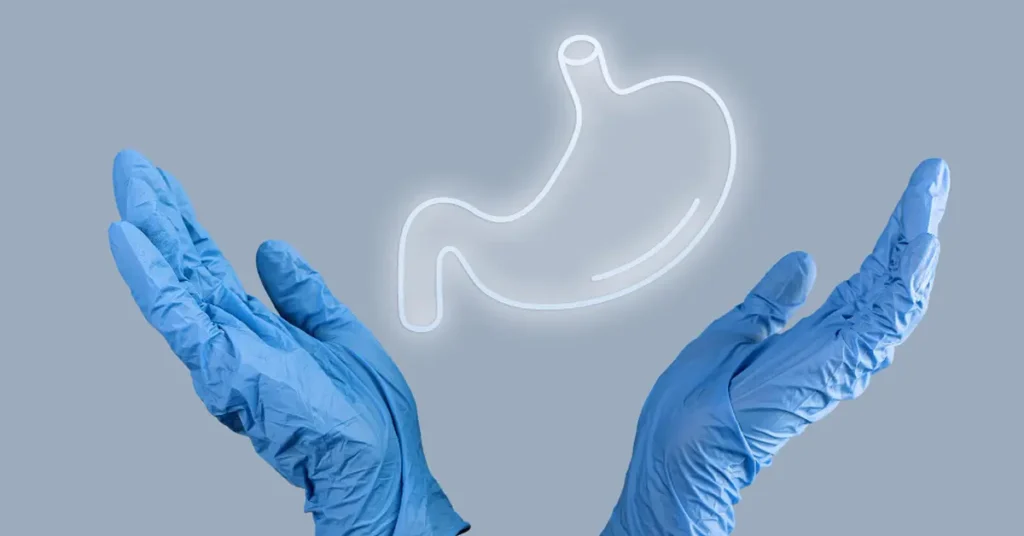Staying hydrated is one of the simplest yet most effective ways to support a healthy digestive system. Water plays a crucial role in every step of digestion, from breaking down food to absorbing nutrients and maintaining smooth bowel movements. At GI Solutions, we emphasize how critical hydration for digestive health is in preventing common digestive issues and promoting overall gut health and well-being.
How Hydration Supports Digestion
Water acts as a key facilitator throughout the entire digestive process:
Breaking Down Food
Water helps dissolve digestive enzymes and nutrients, making it easier for the body to break down food and efficiently absorb vital nutrients. Since saliva is mainly water, hydration supports carbohydrate breakdown starting right in the mouth.
Absorbing Nutrients
As digested food moves through the intestines, nutrients are absorbed into the bloodstream with water acting as the essential solvent, enabling this critical process.
Preventing Constipation
Dehydration causes the colon to absorb too much water from waste, leading to hard, dry stools that are difficult to pass. Staying well-hydrated keeps stool soft and promotes regular bowel movements, significantly reducing the risk of constipation.
Maintaining Intestinal Lining
The mucosal lining inside the intestines relies on sufficient moisture to function properly. Proper hydration keeps this lining healthy, supporting optimal nutrient absorption and serving as a barrier against harmful pathogens.
Balancing Stomach Acid
Adequate hydration helps maintain stomach acid at optimal levels, lowering the chances of acid reflux, heartburn, and indigestion.
Why Hydration is Essential for Gut Health
Proper hydration also supports a healthy balance of gut bacteria, which is crucial for immune function and efficient digestion. Water assists in moving food smoothly through the digestive tract, preventing bloating and discomfort that occur with poor digestion. It also facilitates the production of digestive enzymes needed to break down proteins, fats, and carbohydrates effectively.
Recommended Hydration for Digestive Health
Health experts generally recommend drinking at least eight 8-ounce glasses of water daily, though this varies depending on factors like physical activity, diet, and climate. Those consuming high amounts of dietary fiber should increase water intake accordingly, as fiber needs ample water to help it pass smoothly through the digestive system.
Top Hydration Tips for a Healthy Digestive System
- Drink water consistently throughout the day instead of all at once to support continuous digestion.
- Include hydrating foods such as watermelon, cucumbers, and oranges in your diet to boost hydration naturally.
- Limit excessive caffeine and alcohol consumption, as both can lead to dehydration and digestive discomfort.
- Listen to your body’s thirst signals and avoid chronic dehydration by drinking water regularly.
Conclusion
Proper hydration is key to a healthy digestive system, supporting nutrient absorption, regular bowel movements, and gut balance. Combined with a fiber-rich diet and healthy habits, it can reduce discomfort and improve overall wellness.
At GI Solutions, we help you adopt simple, effective hydration and gut-friendly practices. Take charge of your digestive health today, book a consultation, and start your journey toward better digestion and well-being.
Related blogs
Gut Microbiome Explained: Key to Better Health
What to Eat and Avoid for Better Digestion: Better gut
Fiber for Better Digestion and Long-Term Wellness

Frequently asked questions
How does hydration affect my digestion?
Water is essential for breaking down food, dissolving digestive enzymes, and helping nutrients absorb into the bloodstream. Proper hydration keeps stool soft and ensures smooth movement through the digestive tract, preventing constipation and promoting overall gut health.
Can drinking water prevent constipation?
Yes. When you’re dehydrated, your colon absorbs more water from food waste, leading to hard, dry stools that are difficult to pass. Drinking enough water softens stool and supports regular bowel movements.
Does drinking water during meals affect digestion?
No, drinking water during meals helps digestion by aiding the breakdown of food and maintaining the right balance of stomach acid, reducing risks of acid reflux and indigestion.
Can dehydration affect my gut bacteria?
Yes, adequate hydration supports a healthy gut microbiome, which is crucial for immune function and smooth digestion. Dehydration can disrupt this balance, potentially leading to digestive discomfort and weakened immunity.
What can I do if I struggle to drink enough water daily?
Try drinking water consistently throughout the day rather than all at once, set reminders, carry a water bottle, and add natural flavors like lemon or cucumber slices to make water more appealing.
How much water should I drink for optimal digestive health?
Experts recommend about eight 8-ounce glasses daily, but individual needs may vary based on activity, climate, and diet. People eating high-fiber diets should increase their water intake to help fiber move smoothly through their digestive system.

